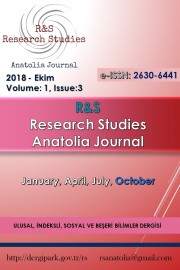İKTİSAT POLİTİKALARI VE KADIN EMEĞİ
ECONOMIC POLICIES AND WOMEN'S LABOR
Author(s): Üyesi Barış AytekinSubject(s): Gender Studies, Labor relations, Economic policy, Political economy
Published by: Arif YILDIZ
Keywords: Economic Policies; Women's Labor; Feminist Economics;
Summary/Abstract: Economic policies (IP) investigate solutions to various problems in the economy. However, the effectiveness of these policies is mostly addressed in macro level (economic growth, total employment, general price level etc.), while the microeconomic dimension (effects on production factors, etc.) is insufficient. The place of women's labor and women in the economy as a special production factor should be considered within the scope of IP. The problem of efficacy of women's labor has significant effects on socio-economic and economic-political aspects. In this respect, in the context of gender inequality (TCE) problem, it has the feature of both the emergence of this problem and the TCE problem. "Gender inequality" is a chronic crisis which have an impact in all areas of life. Overall, female labor participation rate and wage level are low in underdeveloped economies. In addition, opportunities for representation in education, health and political sphere remain insufficient. In addition, low economic participation and income asymmetry emphasize the importance of women's poverty. The problem of efficiency in women's labor within the framework of the TCE causes deviations from the optimum level of macroeconomic targets in an economy and affects the socio-economic / cultural development negatively. Therefore, it is important that economic policies are used more effectively for this problem. The aim of the article is to explain the importance of women's labor in terms of economic policies. First of all, the effects of gender inequality on macro / microeconomic area will be discussed. Afterwards, the relationship of women's labor with economic policies will be emphasized and the problem of women's labor will be evaluated especially in the context of feminist economics.
Journal: R&S - Research Studies Anatolia Journal
- Issue Year: 1/2018
- Issue No: 3
- Page Range: 503-510
- Page Count: 8
- Language: Turkish

